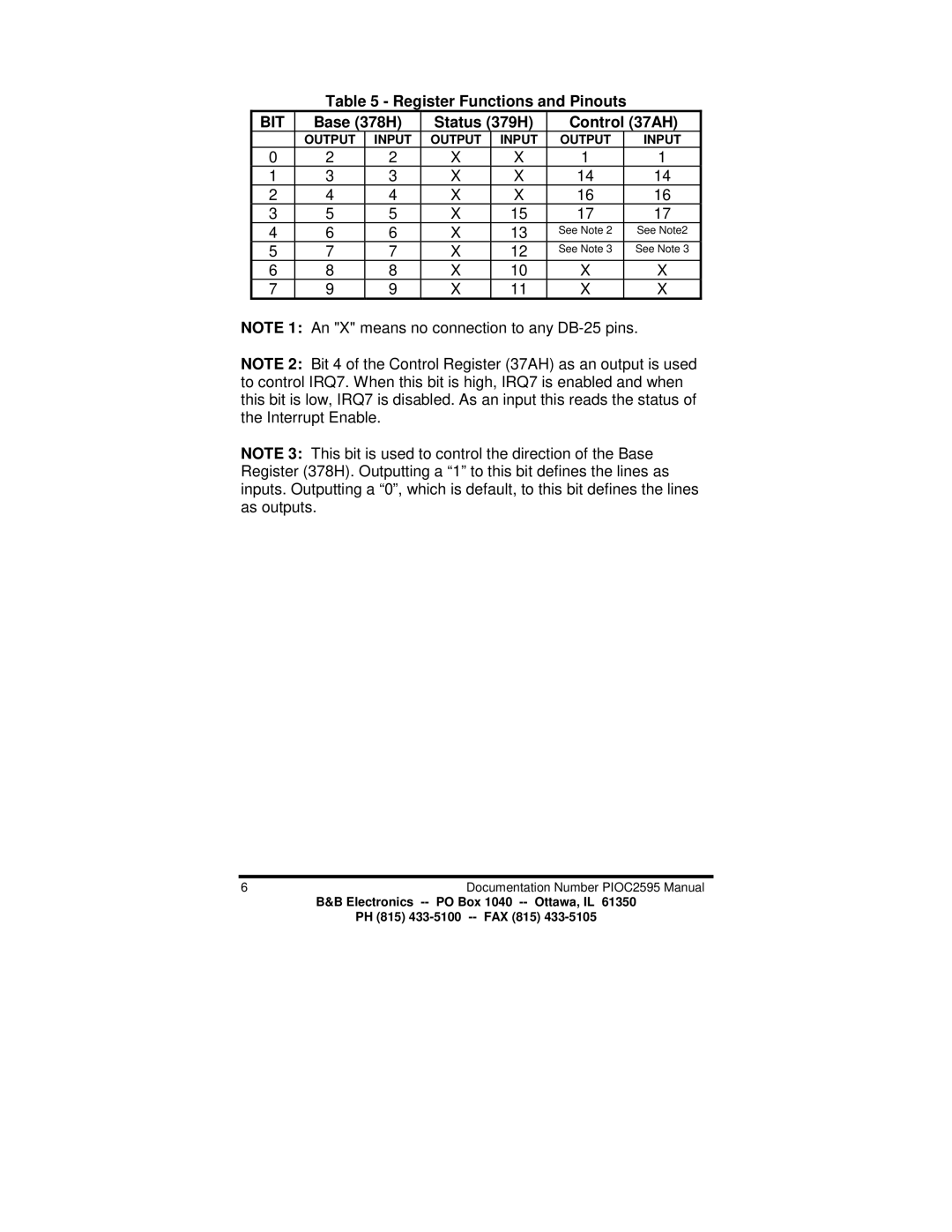PIOC specifications
B&B Electronics PIOC, or Programmable Input Output Controller, stands out as a versatile and robust solution for managing a wide array of industrial automation tasks. Designed specifically for demanding environments, the PIOC offers seamless integration and enhanced capabilities for controlling and monitoring processes.One of the key features of the PIOC is its ability to support various communication protocols. This flexibility ensures compatibility with different industrial equipment and systems, making it a critical component in diverse applications, from manufacturing to transportation. The device supports Modbus, Ethernet/IP, and other industry-standard protocols, allowing for easy integration into existing networks.
The PIOC is equipped with a powerful, user-friendly programming interface that simplifies the development of custom applications. Users can create tailored control routines using popular programming languages such as Ladder Logic, C, or Python. This feature empowers engineers to implement complex automation schemes without extensive retraining, saving time and resources.
Another notable characteristic of the B&B Electronics PIOC is its exceptional durability. Built with rugged materials, the PIOC can withstand harsh environmental conditions, including extreme temperatures, humidity, and dust. This makes it an ideal choice for industrial settings where reliability and longevity are paramount. Moreover, it is designed to meet various safety and compliance standards, ensuring that it can be deployed in a variety of regulated industries.
The PIOC also boasts a variety of I/O options, including digital and analog inputs and outputs. This versatility enables it to monitor sensors, control motors, and manage other devices seamlessly. With support for various expansion modules, users can easily scale their systems as their needs change, allowing for future growth without requiring a complete overhaul of existing infrastructure.
In addition to its powerful processing capabilities, the PIOC features advanced data logging and reporting functionalities. This allows users to collect and analyze performance metrics, optimize operations, and make informed decisions. The data can be accessed remotely, enabling real-time monitoring and control through web-based interfaces or mobile applications.
The B&B Electronics PIOC is an excellent choice for organizations looking to enhance their automation capabilities. With its robust design, flexible programming options, and extensive connectivity, it provides a reliable foundation for modern industrial applications. Whether used in machinery control, process automation, or data acquisition, the PIOC stands ready to meet the evolving demands of the industrial landscape.
